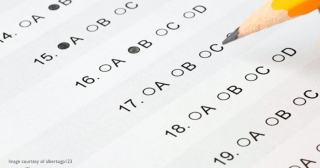A report from the Education Select Committee, published in May 2017, criticised assessment in primary schools, saying its close link to school accountability is creating a "high-stakes" system that is harming teaching and learning.
The group of cross-party MPs confirmed what many primary school teachers have been saying for a long time: that the new SATs system is leading to a "narrowing" of the curriculum and causing considerable stress for staff and students.
According to Neil Carmichael, the committee's chair at the time, staff are focusing on ensuring that pupils master the new (more challenging) English and maths papers to the detriment of other subjects such as science, humanities and the arts.
The committee says this encourages to teaching-to-test and has urged Ofsted to look across the whole curriculum during inspections, instead of putting too much emphasis on English and maths results.
"High-stakes accountability is turning the last year of primary school into something that has been twisted out of shape because of the demand for results," says education writer, Sue Cowley, who is also chair of a management committee at a preschool.
"It's not the case in every school, but it takes a brave headteacher not to give in to the pressures. It's good to see that they've [the education select committee] understood that a focus on a single cohort is troublesome – this is often an issue raised by the teachers I meet. A tricky year can lead to a dip in the data which can then lead to problems in an inspection."
She continues: "It's great to see the comment about Ofsted ensuring that children get their entitlement to a broad and balanced curriculum. We've all heard stories of schools narrowing the curriculum to spend more time focusing on the tested subjects."
Cowley also points to the increase in revision classes in the holidays as an area of concern for parents and teaching staff.
She adds: "These tests are now seen as so important that not only do parents have to make sure their children don't miss school during term time, apparently now children must give up their holidays too."
The inquiry was commissioned after the chaotic introduction of the new SATs in 2016, which saw the accidental leaking of the tests online, 47% of students failing to meet the standard and a host of complaints from parents and teachers about the difficulty level. The report highlights serious issues with the implementation, saying that schools felt confused and pressured, with little time to plan.
"The information about them was communicated to schools so late," says Sinead Gaffney, a primary deputy headteacher from Sheffield. "And in key stage 2, the children had only been taught two years of the new six-year curriculum when they sat the tests, so their teachers were not able to give the significantly changed curriculum the time it needed.
"The focus shifted to preparing children for the new tests rather than developing teachers' understanding of the changed curriculum and how best to teach it."
The report also underscores the negative effects of the system on pupils' wellbeing – sentiments that were echoed in a recent survey from The Key. It found that 82% of primary school leaders had seen mental health issues increase over exam time, with 81% saying that pupils' mental health is more of an issue now than it was two years ago (coinciding with the introduction of the new tests).
The committee's findings have been praised by teaching unions, who have long argued that too much pressure is placed on schools around key stage 2 results.
Kevin Courtney, general secretary of the NUT, said: "The NUT welcomes this report. It lays the basis for a serious conversation about primary assessment, going well beyond the narrow limits of the DfE's current consultation.
"The committee's judgement that the high-stakes system does not improve teaching and learning
He continues: "The case for the current system has been demolished: it is riddled with problems and cannot continue.
"If the next government does not grasp the scale and scope of the problems identified by the committee, then it will face a rising opposition, armed with the arguments that are presented in this report."
But the report is clear that the difficulties don't just from come from the tests, but the wider landscape of which they are
Carmichael says: "Many of the negative effects of assessment in primary schools are caused by the use of results in the accountability system rather than the assessment system itself.
"It is right that schools are held to account for their performance but the government should act to lower the stakes to help teachers to deliver a broad, balanced and fulfilling curriculum for primary school children."
Not much change there then ...
